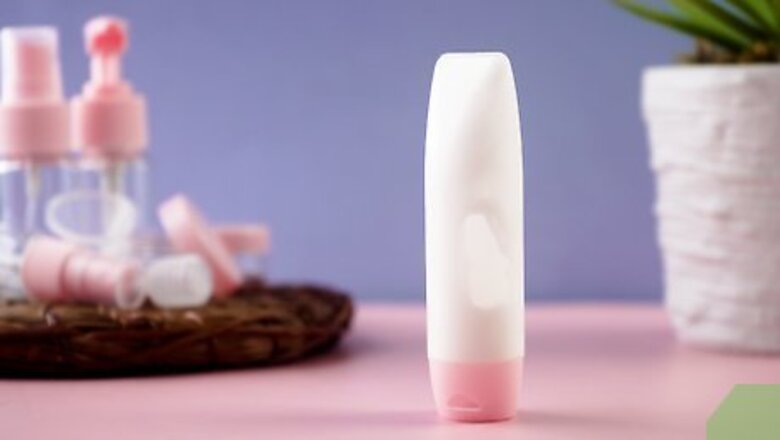
views
Emptying Your Travel Bottles
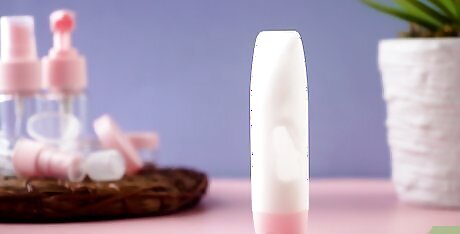
Leave the bottle upside down so the product falls to the opening. Once you’ve used most of the product in the travel bottle, turn the bottle upside down and leave it for several hours or overnight so that the last of the product will fall down towards the cap. Then, carefully remove the cap and allow the remaining product to slide out. The amount of time it will take for the product to slide down towards the opening varies depending on the type of product. For example, liquid facewash or mouthwash will likely take much less time than a thick lotion or conditioner.
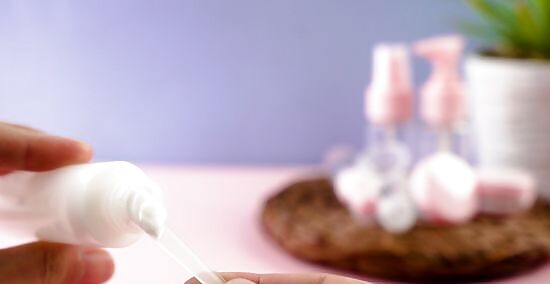
Use a beauty spatula to scoop out the last of the bottle’s contents. There are several types of beauty spatulas on the market today that are specifically made for scooping the last bits of product out of small containers and bottles. While there will likely still be some product residue left behind, these tiny spatulas fit through the opening of most travel bottles and will allow you to scrape much of the product from the sides and bottom. Beauty spatulas are widely available online and at many beauty supply stores.
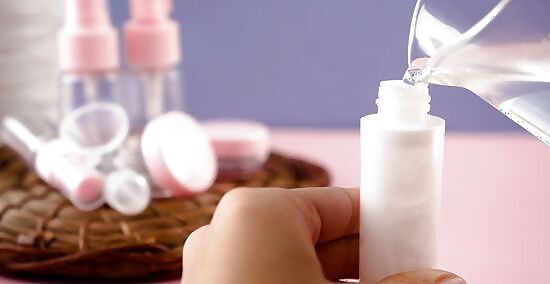
Rinse the bottle with water to loosen and liquefy any residue. Remove the cap of the travel bottle and pour in a small amount of water, filling it about 1/8 to ¼ of the way up. Replace the cap and shake the bottle to swish the water around so that it combines with the remaining product and loosens it from the bottle walls. Remove the cap and pour out the remaining thinned, liquefied product. While liquefied lotion or makeup will likely be too messy to use, if your travel bottle contained shampoo, conditioner, or facewash, you can use the diluted last bit of product so that it’s not wasted.
Sanitizing Travel Bottles for Reuse
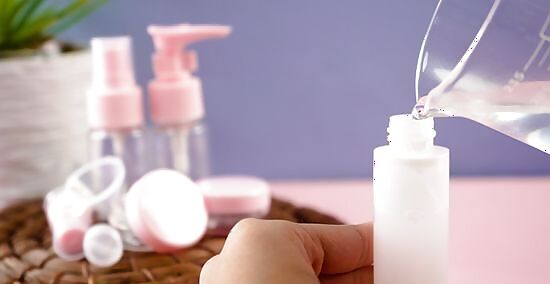
Use a white vinegar solution for a natural bottle sanitizer. Fill the travel bottle about ¾ full with hot water, then add 1 to 2 teaspoons (4.9 to 9.9 mL) of white vinegar. Replace the cap and shake the bottle to combine the water and vinegar, then let the solution sit for about 15 minutes. Dump the solution into the sink and rinse the bottle with water. Then, let the travel bottle air dry completely. Any remaining vinegar smell will likely dissipate once the bottle air dries.
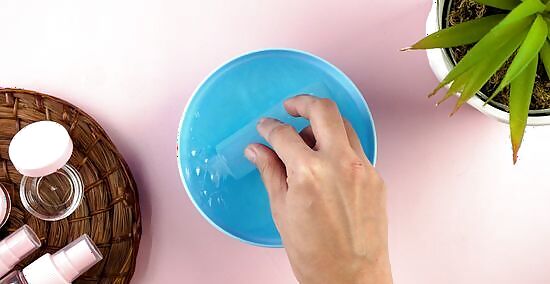
Soak your travel bottles in dish soap for an easy sanitizing option. Fill a bowl with 1 teaspoon (4.9 mL) of dishwashing soap and water. Remove the cap of the travel bottle and submerge both the cap and bottle in the soapy water. Leave the bottles to soak overnight, then rinse them with water to remove any residual dish soap. If there was any product residue left in the bottle, you’ll likely see it floating on top of the water after soaking overnight. If you want to clean the bottle faster, try filling it with a squirt of dish soap and water. Replace the cap and shake the bottle vigorously. Then, pour out the dish soap solution, as well as any residual product, and rinse the bottle with water.
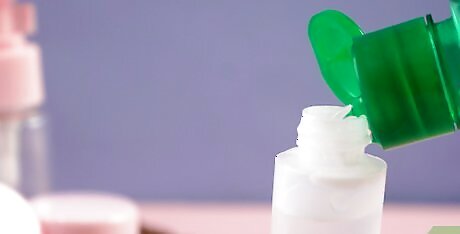
Cleanse the bottles with a rubbing alcohol soak to disinfect them. First, fill the travel bottle with rubbing alcohol. Let it sit for several hours or overnight to allow the alcohol to loosen any residual product and sanitize the bottle. Then, pour out the alcohol along with any product residue and rinse it with water. Let the bottle air dry completely before refilling it with product. Air drying will allow the alcohol residue to continue to disinfect before dissipating as it dries.
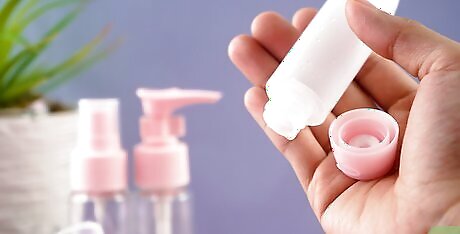
Run the bottles through the dishwasher if they’re dishwasher safe. To sanitize your travel bottles, you can run them through the dishwasher after removing as much of the product as possible. Make sure that you check whether the material is dishwasher safe first, however, as the heat could damage or ruin some types of plastic and silicone. While some plastic and silicone travel bottles are dishwasher safe, others are not. Therefore, you can’t necessarily determine whether you can run them through the dishwasher based on the material alone. To see whether your travel bottles are dishwasher safe, check the label on the bottles or packaging, or look on the brand’s website. In most cases, dishwashers get hotter at the bottom. Therefore, you may want to put your travel bottles on the top rack to keep them away from the highest levels of heat.




















Comments
0 comment